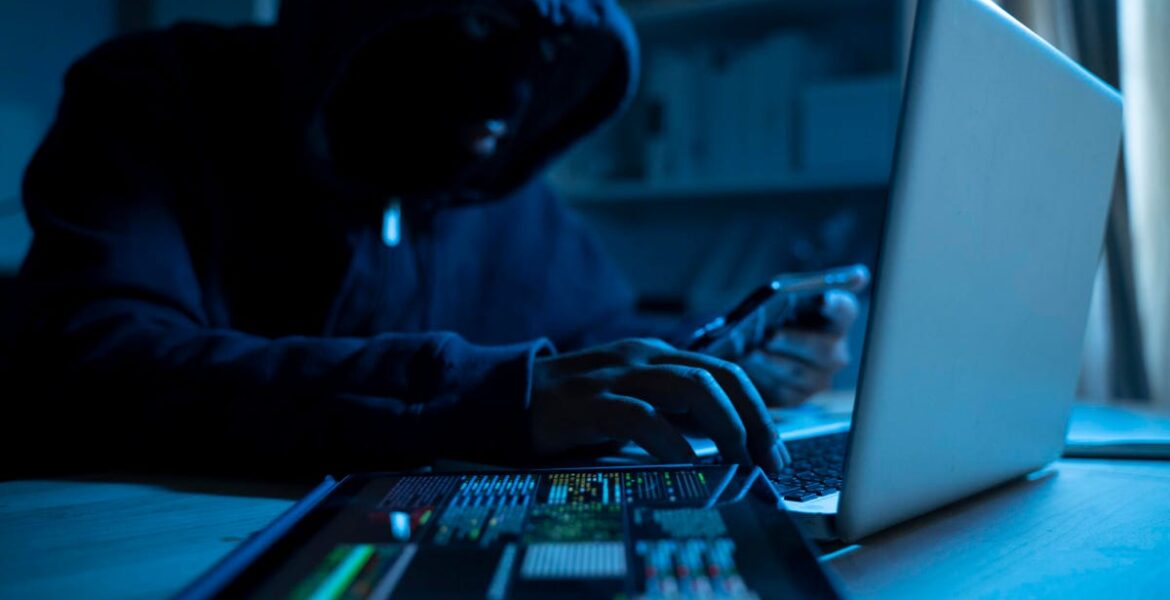In recent years, Pakistan’s cybercrime enforcement has faced severe criticism for its apparent inability to tackle genuine criminal activities online.
Instead, the machinery designed to protect citizens from digital threats has often been weaponized against journalists, activists, and dissenting voices.
The dismal conviction rate of less than 5 percent under the Prevention of Electronic Crimes Act (PECA) underscores a systemic failure to address actual cybercrime, raising questions about the priorities of the country’s digital enforcers.
Since 2020, Pakistan’s Federal Investigation Agency (FIA) has arrested over 7,020 individuals on charges related to cybercrime. However, only 222 of these cases have resulted in convictions.
This abysmal conviction rate highlights significant flaws in the investigative and prosecutorial processes.
The low success rate suggests either a lack of robust evidence-gathering mechanisms or a judicial system ill-equipped to handle the complexities of cybercrime cases.
In many instances, investigations into legitimate cybercrimes—such as financial fraud, identity theft, and online harassment—are marred by delays and inefficiencies.
Victims often report long waits for action, only to be met with insufficient follow-through.
With 143 million internet subscribers in Pakistan, the annual tally of 160,000 cybercrime complaints seems surprisingly low.
Even the FIA’s spokesperson concedes the figure should surpass 200,000.
This disparity points not to a shortage of crime but to a widespread lack of trust in the system.
For a country experiencing a rapid increase in internet penetration and digital activity, this inefficiency is not just an institutional failing; it’s a growing societal risk.
While genuine cybercriminals evade justice, PECA has been increasingly used to stifle dissent.
Journalists and activists have found themselves on the receiving end of this legislation, often for activities that fall well within the realm of free speech.
The misuse of PECA reflects an alarming trend: instead of functioning as a shield to protect citizens from online threats, the law has been wielded as a sword against those who challenge the status quo.
High-profile cases illustrate this troubling pattern.
Journalists critical of government policies have been targeted with charges of “spreading misinformation” or “defaming public officials” online.
Activists advocating for human rights or environmental issues have faced similar accusations, with their social media posts scrutinised and misrepresented as threats to national security.
Such actions not only undermine the principles of free expression but also erode public trust in the cybercrime apparatus.
The targeting of journalists under PECA has created a chilling effect on press freedom in Pakistan.
Fear of retaliation has forced many to self-censor, diluting the quality of investigative journalism.
Those who persist in reporting on sensitive topics often face a barrage of legal notices, arrests, or even physical threats.
The psychological toll of this harassment cannot be overstated, as it stifles not only individual journalists but also the broader media landscape.
For example, in 2021, journalist Asad Toor was charged under PECA for allegedly sharing “anti-state” content on social media.
Although the charges were later dismissed, the incident sent a clear message to others in the profession: dissent comes at a cost.
Such cases highlight how the law has been weaponized not to protect but to intimidate.
The FIA’s focus on suppressing dissent instead of combating genuine cyber threats raises serious concerns.
Cybercrime in Pakistan encompasses a wide range of activities, including hacking, data breaches, financial scams, and online harassment.
These crimes affect thousands of citizens daily, leading to significant financial and emotional harm.
Yet, these cases receive less attention compared to those involving high-profile critics of the state.
Part of the problem lies in the prioritisation of resources.
Instead of investing in advanced forensic tools and training personnel to tackle complex digital crimes, authorities appear more intent on monitoring social media for politically sensitive content.
This misplaced focus not only hampers the fight against cybercrime but also undermines the credibility of the country’s law enforcement agencies.
Globally, countries grappling with cybercrime have recognised the importance of balancing enforcement with the protection of civil liberties.
Nations like Estonia and Singapore have developed robust frameworks to address cyber threats while ensuring accountability and transparency in enforcement.
These countries have invested heavily in cybersecurity infrastructure, specialized training, and public awareness campaigns—measures largely absent in Pakistan’s approach.
Moreover, international best practices emphasise the need for clear legal definitions and procedural safeguards to prevent the misuse of cybercrime laws.
Unfortunately, PECA’s vague language allows for broad interpretation, making it ripe for abuse.
For instance, terms like “anti-state” or “defamation” lack precise definitions, granting authorities wide discretion to target individuals arbitrarily.
Pakistan’s cybercrime apparatus, as it stands, is failing to deliver justice.
With a conviction rate hovering below 5 percent and a track record of targeting journalists and activists, the system is in urgent need of reform.
PECA, designed as a tool to protect citizens from digital threats, has instead become a weapon against dissenting voices.
Addressing the shortcomings of Pakistan’s cybercrime apparatus requires comprehensive reform. By realigning its priorities, investing in capacity-building, and promoting accountability, Pakistan can transform its cybercrime enforcement into a force for good. Until then, the noise generated by digital enforcers will continue to overshadow their lack of meaningful achievements.

